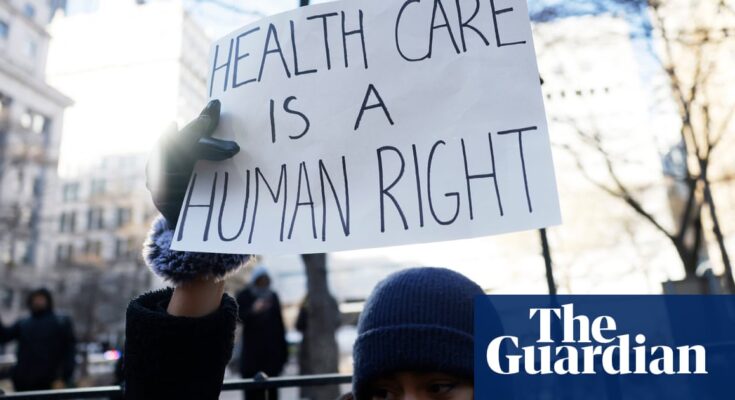After the assassination of Brian Thompson, the CEO of UnitedHealthcare, and the outpouring of confusion about insurance coverage, early consent has emerged as a particular disruption in health care.
Prior authorization requires medical providers to obtain the insurer’s approval before patients receive health care or medication.
“As a physician, prior authorization is the first and most confusing aspect of outpatient medicine right now, by far,” said Dr. Gabriel Bosslet, a pulmonologist and professor at the Indiana University School of Medicine.
“I spend more time trying to figure out how I need to get these medications than I do seeing a patient and doing an exam and writing a prescription.”
Originally intended to control the cost of certain medicines and treatments, the frequency of prior authorization requirements has increased in recent years and is now attacking routine and affordable care.
“This didn’t happen five or seven years ago,” Bosslet said.
Miranda Yaver, an assistant professor of health policy and management at the University of Pittsburgh, noted that “prior authorization is something that is really prevalent in the growth of managed care in the United States”.
Another study found changes such as setting more time for insurers to respond and make standard requests would help provide patients with the care they need.
Several states and Washington DC have passed laws to change prior authorization procedures.
A federal bill that would expedite such approvals for Medicare Advantage plans was also returned this year to Congress. In January, the Centers for Medicare and Medicaid Services finalized a new rule to streamline prior authorization as a cost-cutting measure.
Almost one quarter (24%) of doctors say that prior consent “has led to a serious adverse event for a patient in their care”, according to a survey from the American Medical Association (AMA).
Yaver talked to a patient with severe immunodeficiency who was denied medication because his multiple infections were bad, but not yet life-threatening – “a surprising diagnosis”, Yaver said.
The incoming Trump administration has shown greater support for programs like Medicare Advantage, where 99% of enrollees are required to have prior authorization. That can mean more administrative burdens, more denials and hindering access to care, Yaver said.
Medical practices report a total of 43 prior authorization requests per physician per week, the AMA survey said. That’s why more than a third (35%) employ workers whose sole job is to manage pre-approvals.
However, some requests are made to doctors.
Bosslet usually works with patients at the hospital, but sees them once a week at the clinic. Every day of the clinic, he estimates that he has to appeal the rejection by the insurers of the first approval, even after the workers have provided all the necessary documents.
Recently, that meant fighting with insurance to provide standard asthma treatment to a patient who has been dependent on medication for more than a year.
He called the number listed on the paper and finally reached the person on the other end of the line who instructed Bosslet to copy a hidden form from the insurance website.
after the news release
Days after he sent it, he got a notification that he hadn’t filled out the form fast enough. In order to appeal a second time, he had to call a new number, which eventually directed him to a fax number where he could send a new appeal – but without giving him information on whether what form to use or what information is required on the prescription.
Another part of the confusion is that “prior approval” means something different to each insurer and each plan, with different forms, questions and submissions.
“It’s like having to learn a whole new language every time you get an appeal denied,” Bosslet said.
And all this work should happen in addition to the time of providers and patients.
“I try to deal with that in my clinic when I have scheduled patients,” Bosslet said, adding that the entire process seems to be designed to get donors to donate.
He said: “The system works as intended, it can confuse and put people in situations where they have to spend more money on it.”
Bosslet continued: “People are confused that health insurance companies make billions of dollars.
“There is a lot of confusion about the fact that these institutions are taking a lot of money out of the health system and doing it at the expense of sick people.”
The insurer, Wellcare, did not respond to media inquiries. When contacted the first time, an automated message from Wellcare said to expect a response within 24 hours; when contacted three days later, the message instructed reporters to send a different media account.
Bosslet sent the insurer a new form with the information it requested — information that was on the original prescription. That still didn’t work.
“I’m sad,” said Bosslet.
The first edition with a prescription for asthma appeared on December 4. As of press time, the medication had not yet been approved. It costs $31.
#lawmakers #eyeing #health #insurance #reform #confusion #mounts



